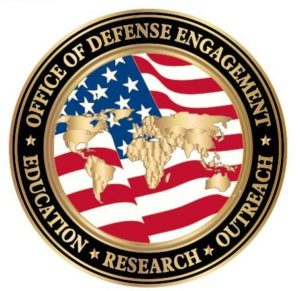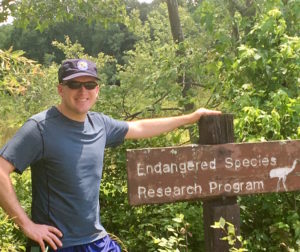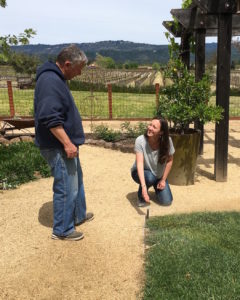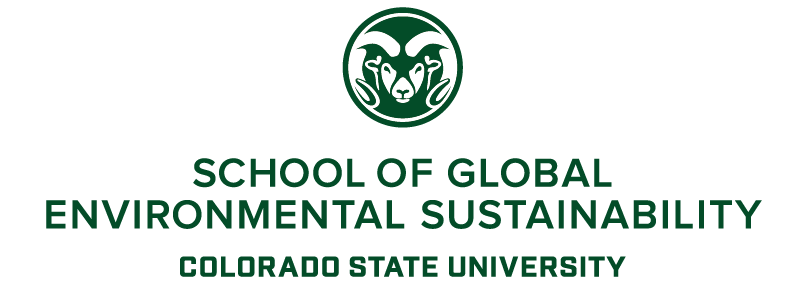Colorado State University launched three new graduate certificates in Applied Global Stability in Fall 2017, and by May, six students had completed one of the new programs.

The certificates are designed to provide knowledge about global stability to military personnel in the Special Operations and Civil Affairs communities as well as other professionals in the Department of Defense, U.S. Agency for International Development, Peace Corps, and other entities working to address the United Nations’ Sustainable Development Goals. Each certificate requires the completion of 12 credits, which can be completed online. The program is administered by CSU’s Office of Defense Engagement through the School of Global Environmental Sustainability.
The three available concentrations for the certificates are agriculture, natural resources, and water resources.
‘Great stepping stone’
“These certificate programs are wonderful,” said Trevor Siperek, a lieutenant in the U.S. Coast Guard who earned his certificate in natural resources in December 2017. “If you want to explore graduate courses before committing to a graduate program, a certificate program is a great stepping stone to get your foot in the water, because it’s only 12 credit hours.”
As a response ashore officer, Siperek’s position involves protecting marine environments and enforcing marine environmental law, whether it’s responding to hazardous materials spills or making sure fisheries are following regulations. He was able to complete the natural resources certificate entirely online.

“In the military, you’re constantly moving around, and you have a crazy work schedule,” he said. “It’s been great to have that portability to log in wherever you are located.”
Siperek said he learned a lot about environmental law and sustainability, which he can apply directly to his job.
“This program makes you more well-rounded and versed in a variety of topics,” he said. “This provides the background to make those difficult decisions required in a variety of natural resource fields. I thought it was well worth it. It was straightforward, and you get recognition in the form of a certificate at the end.”
Enrollment numbers
Jim Lindsay, a CSU history professor and academic coordinator for the Office of Defense Engagement, said 28 students were admitted to the programs during 2017-18: nine in agriculture, 11 in natural resources and eight in water resources. Another 18 have been admitted for Fall 2018. Applications for Spring 2019 will be considered through the end of December.
He said the certificate programs were an outgrowth of the Office of Defense Engagement’s work with Green Beret medical sergeants from Fort Carson in Colorado Springs.
“While the initial impetus for creating the certificates was to provide access to CSU’s agriculture, natural resources and water resources expertise to the other members of the Green Beret teams, the enthusiastic response from non-military sectors has been a very welcome surprise,” Lindsay said.
According to Lindsay, CSU Online has been integral to the certificates’ early success. “This is all a result of people visiting the CSU Online website,” he said. “CSU Online has been extremely helpful getting the word out.”
Team effort
Associate Vice President Hank Gardner, director of CSU’s Office of Defense Engagement, credited Lindsay and his campus partners for the early success of the certificates.
“The Applied Global Stability graduate certificates provide a significant educational foundation to our office,” he said. “The leadership of Dr. Lindsay has been critical to developing this team of faculty, SoGES members, and distance education professionals who are providing this opportunity to resident and distance students. I am very encouraged by the service, research and education opportunities that ODE is increasingly providing for CSU to serve this community.”
Renee Harmon, who teaches “Issues in Global Environmental Sustainability,” the foundational course for all three certificates, said she’s had a wide variety of students in her class, including a firefighter, a law student from Vanderbilt University, members of the military, and current CSU students majoring in everything from social work to ecology. In her course, she addresses social, environmental and economic issues, including water, energy, biodiversity, refugees, poverty and educational access.
“We try to cover a lot of things in a short amount of time,” said Harmon, who received one of CSU’s Best Teacher Awards this spring and is an instructor in the School of Global Environmental Sustainability. She earned her Ph.D. in education and human resource studies at CSU, and also serves as an assistant professor at Minnesota State University Moorhead’s School of Teaching and Learning.

Valuable experience
One of Harmon’s former students, Terra Sampson, landed a job last spring as an energy services specialist for the City of Fort Collins. She discussed one of the projects she did for class during her job interview, holding it up as evidence of her experience in the field.
“The openness of the assignments allowed me to tailor them to my career goals,” Sampson said. “It was great to have a recent, practical example of an energy-efficiency project to discuss in my interview.”
Sampson added that the other main benefit of the two water resources certificate courses she has taken is interacting with classmates who are professionals in the field. She said that whether it was via online discussion posts or Skype, talking to people who are working in water management was invaluable.
Prior to her job with the city, Sampson was program coordinator for the master’s program in conservation leadership at CSU, which she herself has completed.
“I’m taking a little break from the certificate program to focus all my energy on my new job, but I plan to finish it,” she said.
More information about the certificates is available at the CSU Online website or by contacting Lindsay at james.lindsay@colostate.edu.
